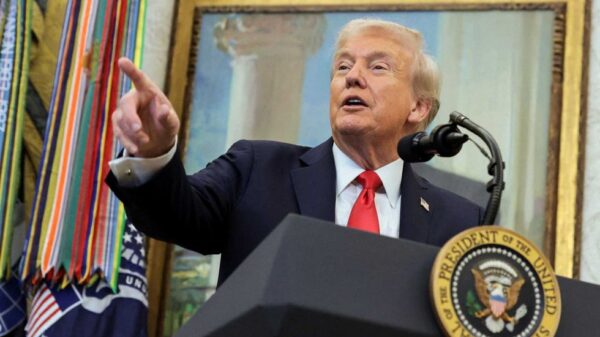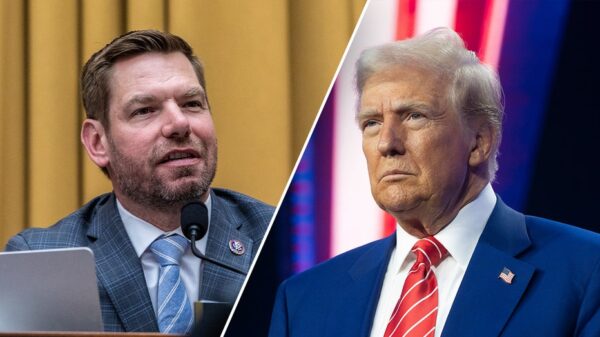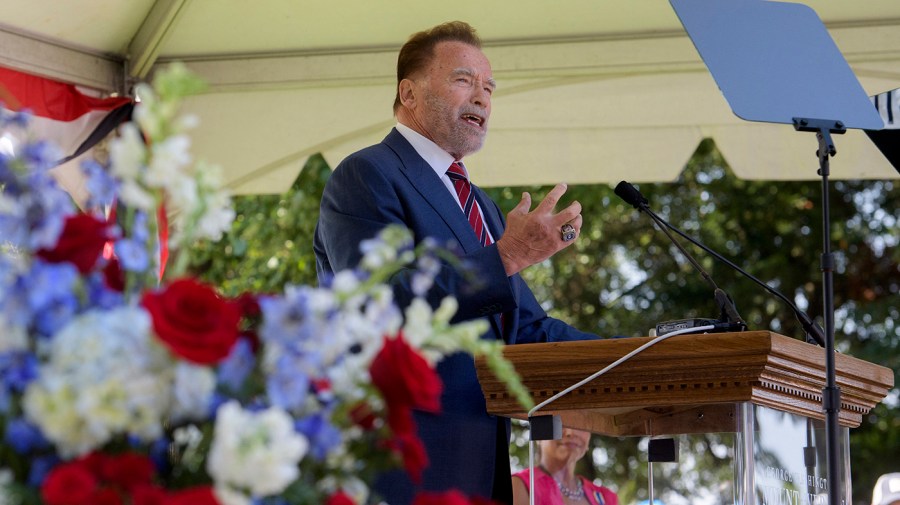Arnold Schwarzenegger is re-entering the political landscape as a vocal opponent of partisan redistricting in California. The former governor and Hollywood star is calling on Californians to “terminate gerrymandering,” joining forces with notable figures such as former House Speaker Kevin McCarthy, investor Charlie Munger, and various state Republican legislators. They are challenging a proposed redistricting plan that could potentially secure five additional Democratic House seats by circumventing the state’s independent redistricting commission.
Schwarzenegger has been a longstanding advocate for this commission, which voters approved during his governorship. Political analysts suggest his renewed activism aims to defend his legacy, particularly as current California Governor Gavin Newsom asserts that the proposed changes will not undermine the established system.
“Schwarzenegger was and is a Republican, but there are certain issues that separate him pretty dramatically from the party mainstream,” noted Dan Schnur, a former Republican strategist and current professor at the University of California at Berkeley. “He sees it as under threat.”
The redistricting debate centers around a ballot measure that California Democrats are pushing for a special election on November 4, 2023. This measure would enable Legislature-approved district lines to be implemented mid-decade, effectively sidelining the independent commission. Newsom contends that this tactic is necessary to counteract Republican-led redistricting efforts in states like Texas, where new maps could yield five additional GOP House seats following Donald Trump’s claims that Republicans are “entitled” to them.
Schwarzenegger has criticized both California and Texas proposals, stating, “It is very wrong what they’re doing to Texas and it is very wrong what they’re trying to do in California. It is not at all serving the people. It is serving the party.” His comments reflect a commitment to the principles he championed during his two-term governorship, notably the 2008 and 2010 initiatives that created and expanded California’s independent redistricting commission.
In an interview with the New York Times, Schwarzenegger emphasized that his actions are not politically motivated but are efforts to protect a system he helped establish. “It’s nothing personal,” he stated, reaffirming his dedication to citizen-led redistricting.
Political dynamics around this issue are complex. Mike Madrid, a Republican strategist and co-founder of the Lincoln Project, described Schwarzenegger’s involvement as both a legacy effort and a genuine concern for California’s governance. “This was something he was talking about even before he was running for governor,” Madrid remarked.
While the exact details of Schwarzenegger’s campaign strategies over the coming weeks are still unfolding, he has indicated a readiness to engage in this “gerrymandering battle.” His “Arnold’s Pump Club” website features merchandise promoting the message to terminate gerrymandering, with proceeds benefiting the League of Women Voters in both California and Texas.
Newsom has reiterated his support for independent redistricting while asserting that the proposed measure is a necessary response to the current political climate. He mentioned his discussions with Schwarzenegger, expressing respect for his predecessor’s viewpoint. “I completely respect his point of view and position. And by the way, I told him, I share it,” Newsom said.
Both Republican and Democratic factions are mobilizing for this contentious ballot measure. McCarthy is rallying support to counter Newsom’s initiative, while Trump has pledged potential legal action against California’s plans. Political experts anticipate this redistricting fight could become one of the most expensive and contentious ballot measure campaigns in California’s history, with over $13 million raised in support and $10 million in opposition as of late September.
Alongside campaigning efforts, California Republicans have filed multiple petitions in an attempt to halt the proposed redistricting plan, although these have been rejected by the state Supreme Court. The intensity of opposition is further illustrated by a proposal from the top Republican in the California Assembly, suggesting a “two state solution” to isolate redder inland areas, though this idea lacks viability in the Democratic-controlled legislature.
As this political battle unfolds, the stakes are high. Both sides are poised to leverage their respective strategies to influence the outcome of Proposition 50, which may have lasting implications for the state’s political landscape. The upcoming special election is shaping up to be a pivotal moment, not only for California but potentially for broader discussions on redistricting and electoral fairness in the United States.





































































